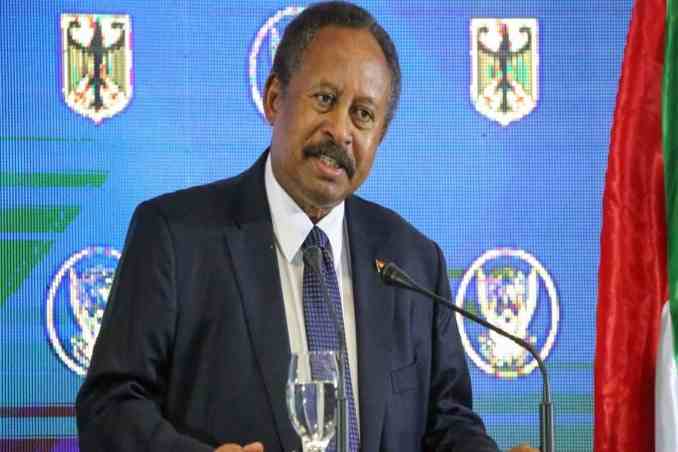Last updated on September 11th, 2021 at 07:57 am
Sudan’s prime minister warned on Tuesday of “very concerning” divisions inside the country’s security services and called for political reconciliation between civilian and military factions. Prime Minister Abdalla Hamdok made the remarks as he unveiled an endeavor to bring together the factions steering Sudan’s fragile transition following the removal of dictator Omar al-Bashir in April 2019.
Since the factions signed a power-sharing agreement in August of the following year, Sudan has been ruled by a civilian-military ruling administration. Nearly two years later, the transition is still beset by difficulties, including rebel and civilian pressure to restructure the military.
“All of the issues we’re having, in my opinion, are symptoms of a bigger crisis, which is basically a political crisis,” Hamdok told journalists. He cited divisions among pro-democracy demonstrators who spearheaded the anti-Bashir rallies in December 2018, as well as fracture inside the military as “a highly concerning issue.”
READMORE: KwaZulu-Natal Court Ruling for Land Reform in South Africa
Hamdok stated that his program aimed to press for military changes and ensure that armed groups, such as the formidable paramilitary Rapid Support Forces (RSF), were integrated into the military. Tensions between the RSF and the Sudanese Armed Forces over integration have been reported in Sudanese media on several occasions.
Dismantling the remains of Bashir’s administration, addressing the economic crisis, and building a transitional legislative body are among the other aspects in Hamdok’s program. Last year, Hamdok’s administration negotiated a historic peace agreement with rebel groups to cease violence in numerous border regions of the country. Only two important factions refused to sign the agreement.
Sudan and the major rebel faction of Sudan’s People Liberation Movement — North, led by Abdelazizi al-Hilu, called off talks last week. According to Sudanese media, integrating RSF into the armed forces was a major issue of controversy. Hamdok’s latest remarks came amid mounting public outrage over recent economic reforms, which saw the government decrease gasoline and fuel subsidies.
Angry protestors clogged the streets with burning car tyres in recent days, resulting in a wave of violent crime and looting in Khartoum. Last week, Hamdok warned that if the country’s ruling political forces failed to work together, the country would descend into anarchy and instability.

